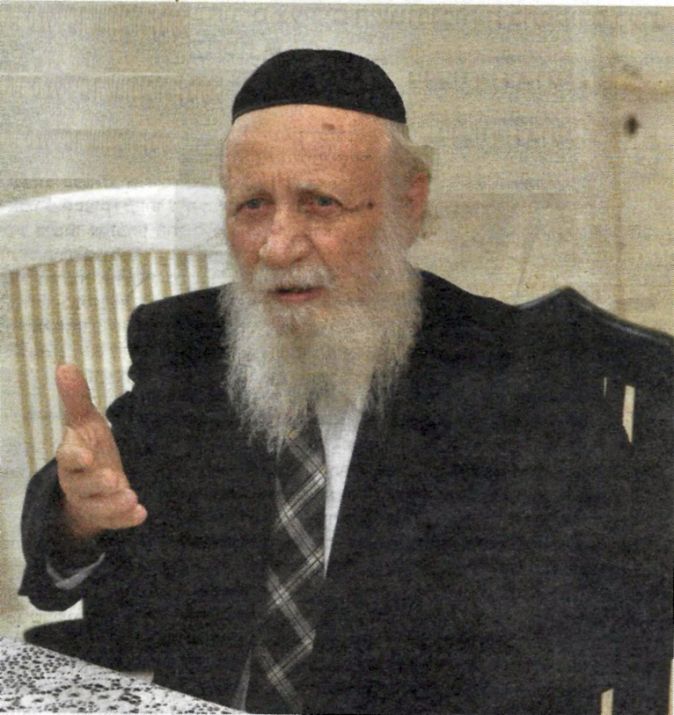
We find the portions of Chumash Bereishis teaching us the ways of our Ovos and Imahos where it is written: "And Hashem remembered Rochel and hearkened unto her and opened her womb." Rashi comments, "He remembered [to her credit] that she transmitted the signs to her sister. She was distressed lest she be married off to Eisov in the event that Yaakov divorced her since she had not borne children. Eisov also thought thus."
Rashi writes here two things which are very relevant to us now. First, Rochel prayed for children, knowing that these would form the future of Jewry. Nevertheless, she had relayed the signs to her sister, realizing that perhaps she would not have a part in the building of the Jewish nation. This is an expression of a kindness in person-to-person relations. One cannot cause pain to a sister who would suffer great embarrassment if she did not know the signs agreed upon between Yaakov and Rochel.
This great act overrode the seven years during which Yaakov prayed for her, and her own prayers for children, for they were not enough, while her transmitting of the signs were considered sufficient merit to overcome her barrenness.
Why, indeed? Because if the Jewish nation is being created, an act involving shame can be a detriment. In order to avoid any such impediment, Rochel was duty bound to give over the signs. We might think that Leah was at fault, knowing full well that Yaakov was serving her father for Rochel's sake. But this is overridden by the cause of shame which is very powerful, as HaRav Chaim Shmuelevitz said: The mitzvah of interpersonal relations is FIRE.
If Leah were to suffer shame from not knowing the designated signs, who knows how big a fire might be ignited? Who knows how much damage this might cause?
And so, Rochel gave in, knowing that she might be forfeiting her chance of building up the Jewish people. This teaches a fundamental in bein odom lechavero and how far one must go. We must care for the next person under all circumstances.
In our dire situation, at such a terrible time, we must be attuned to the needs of the next person. If we empathize with the suffering of another, the suffering of families, day by day, it can build up Klal Yisroel.
Rochel was one of the four Imahos; she knew the extent of sacrifice and knew the importance of not hurting another. This obligates us at all times, but all the more so at this particular time, a time of suffering. We are obligated to be concerned over the suffering of each and every one of our brothers, individually and collectively.
What is the second lesson?
Rashi also notes that Rochel was concerned lest she fall to Eisov. This is a personal issue. Of course she was thinking about the future of Klal Yisroel but she was also thinking about her own future, not to fall to Eisov.
These two things caused HaKodosh Boruch Hu to change nature, to cause a miracle so that she could have children: that she was concerned about someone else and also concerned about herself.
In practice one must certainly be pained by the pain of others but at the same time one must be concerned about oneself, "not to fall to the lot of Eisov." This means that one must exert effort in Torah and in all other important areas. Since the Torah writes that Rochel was remembered, and Rashi brings those two considerations, we must take out for ourselves that we must increase our efforts in Torah and also be concerned about others.
In wartime, the gedolim were always upset by the hard times that people suffered. People are killed and their families are in pain, and in any case even the families at home do not sleep well at night. But they always spoke about the importance of keeping up with Torah learning.
On Chanukah, the Greeks defiled all the oils and the Beis Hamikdash and its vessels. The Netziv writes: "The light of Torah, which is the purpose of the Mishkan and the main means of bringing the Shechina to Klal Yisroel, comes through the shefa via two of the holy vessels the Aron and the Menorah. ... All of the power of Talmud is through the Menorah which includes the seven wisdoms and all that is necessary for pilpulah shel Torah. This is all included in the kaftorim uperochim of the Menorah. In Bereishis Rabbah it says that when Rebbe Tarfon heard something proper he would exclaim, Kaftor vaferach!




